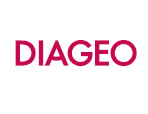 We found ourselves recently at the Terra Nova, sitting through a fascinating seminar on the Diageo Marketing Code for alcohol beverages. The company had invited agencies that promote its brands to closely examine the DMC, as the best practices guide is commonly known. The DMC sets the company’s standards for responsible marketing.
We found ourselves recently at the Terra Nova, sitting through a fascinating seminar on the Diageo Marketing Code for alcohol beverages. The company had invited agencies that promote its brands to closely examine the DMC, as the best practices guide is commonly known. The DMC sets the company’s standards for responsible marketing.
Our hosts were Red Stripe Marketing Director Wayne Lawrence, Noel Da Costa, Diageo's Corporate Relations Director for CAFEC (Central America Free Trade Zone,Ecuador & the Caribbean) and Mark Mc Kenzie, Red Stripe’s Managing Director.
Da Cost offered some background and rationale for the comprehensive code, and recapped recent developments at the World Health Organisation that are impacting the alcoholic beverages industry.
In 2005, WHO enacted a framework convention on tobacco that forced member states to ban its advertising. WHO has since turned its attention to alcohol. Some of its member states believe there is no safe level of alcohol and want to enact a framework convention for it. Framework conventions force signatories to incorporate the convention into the laws of the country.Â
Last January, WHO's executive board agreed that this proposed framework should include:
- A complete ban on all forms of advertising and promotions.
- Health warnings to cover up to 50% of principal display packaging area.
- Taxes to be increased at least 5% above inflation.
- Exclude alcohol from all international trade agreements.
- A suggestion that products should be sold by state corporations.
- Encouraging countries to take legal action against the alcohol industry.
- Nudging the industry to advertise the harmful effects of alcohol.
Of course, this development sobered the industry. After some lobbying, two years ago the alcohol industry was included in the debate about enacting a framework convention. The industry immediately brought new information to the table. Chief among the new data it introduced is a claim that 50 percent of the alcohol sold in countries of the world is illicit. The industry believes that if there is a clamp down on the legal commerce the illicit portion of it will grow.
The industry hopes to work with the WHO to come up with something less drastic than a framework convention. Meanwhile, according to Da Costa, the Pan-American Health Organization is developing an alcohol strategy for the region.
This makes Diageo’s concern about responsible drinking more acute, and it is strongly pushing for compliance from agencies that do business with it. "We want to market alcohol in a manner that is responsible," says Da Costa, "and Diageo wants to have a say in how the industry will look. The DMC is one tool, among others, and we want to make sure it is being implemented correctly."
To help marketers stay on the same page with the company, the DMC requires those who market its brands to:
- Think beyond the target customer.
- Think beyond their own geography and culture.
- Be aware of the sensitivities of all stakeholders at home and abroad.
- Recognize what Diageo does in one market can significantly impact its business in another.
One pillar of the DMC is the Front Page or WHO Test. "This helps Diageo reach beyond the psyche of its customers and take a wider perspective", according to Wayne Lawrence, who was the lead facilitator at the seminar.
Lawrence explained details of the DMC and how it sets the minimum standards of marketing practice that applies across all brands in all markets. "It is the core plank of Diageo's responsible marketing strategy," he told participants.
The DMC is mandatory in all Diageo's activities., said Lawrence, and marketing and innovation directors are accountable for ensuring that such compliance requirements for their markets are met. He advised marketing teams to work together proactively with their partners to ensure compliance to he DMC.
McKenzie ended the session with a motivational talk on why the DMC is so important to Diageo. "They are at the heart of our values, they mean a lot to us," he said.
He advised participants that although they live and work in Jamaica, what they do today is seen almost instantly anywhere in the world.
"You have to understand our expectations and why," the executive advised. "You must be confident that whatever you do is what we need and be responsible for it to help us build our brand. We want to work with people who share the values we do. We don't want to offend people in our marketing or advertising. We want to stand proud behind our brands and our activities."
For a complete copy of the Diageo Marketing Code please click here.
